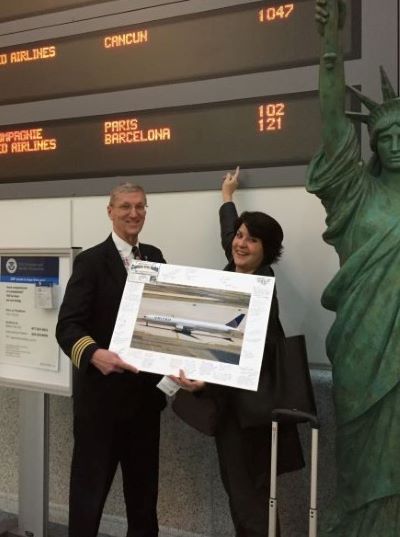Student Perspective: Eric Nolte

Tell us a little a bit about you.
I'm from Richmond, Virginia. I grew up in a musical family. While in college, studying music at the North Carolina School of the Arts, I was drafted by the Army. This was at the height of the Vietnam War, so I was lucky to be deployed to Germany. There I joined a military flying club and got my first few pilot’s certificates and ratings. After the Army, I got my flight instructor’s certificate and moved back to Germany to teach at the same flying club where I’d been a student. Two years later, I got a job flying Learjets for a Saudi company.
Back in the States, I flew for two commuter airlines that went bust and then I went back to college and majored in music. After college, I became a pilot for another three airlines, as they went bust or were taken over. Finally, Continental Airlines merged with United Airlines. Federal regulations require airline pilots to retire at 65, so I finished my 35 year career in 2017, as a 767 captain.
My wife and I then moved to Arizona where I now work as an instructor for Flight Safety International’s Tucson campus.

What was your trading journey?
I’ve been trading for about 25 years and thinking about the subject for much longer than this. I was taken by William J. O’Neill’s “How to Make Money in Stocks.” O’Neill’s approach to trading appealed to me because it was so systematic and logical. I didn’t do badly, but I wanted more.
I met Michael D. West, the brilliant chief scientist and CEO of Biotime, whose work with adult, pluripotent stem cells convinced me that their technology was going to change the world dramatically for the better. But I learned that there is a huge difference between a brilliant company and a brilliant stock. I was desperate for a home run and made what was for me a huge investment in this company. The stock went up 25% in the first year and I sold some of this stock for a down payment on a house. Then, the stock went down and down, and ever farther down. I bailed out after losing around 40%. Ouch! I’m glad I got out when I did because Biotime's stock eventually went down to nearly nothing.
If you could tell someone who is considering OTA why they should join, what would you tell them?
I could begin by telling them about my big losses with Biotime and the importance of OTA’s strategy for risk management.
I would tell them how inspiring I have found OTA. For more than 30 years, I have been reading shelves of books on economics, markets, trading and investing in equities and the various asset classes. OTA has given me the most illuminating set of ideas that I have ever come across in my search for wisdom regarding these matters.
What advice would you give to new incoming students?
I would advise them not to take as many classes as quickly as I did when I first joined OTA. In the first few months, I took classes on Core Strategy, Forex,Futures, and Options, and I confess that my grasp of these things felt a little dizzy after all that! So my advice is to go slower but deeper. Find some one thing you like to focus on and get a good handle on that one thing before moving on.
For me, I have focused on options. I like non-directional credit spreads. Market direction matters hardly at all when you set things up as safely as our approach to selling far out-of-the-money calls and puts.
Above all, take advantage of the mountains of help that are available to us in person and online through live and recorded sessions and courses. I have found OTA to be a community of people who are eager to help each other! Take advantage of these opportunities to continue learning.
This content is intended to provide educational information only. Trading is risky and you can lose money.